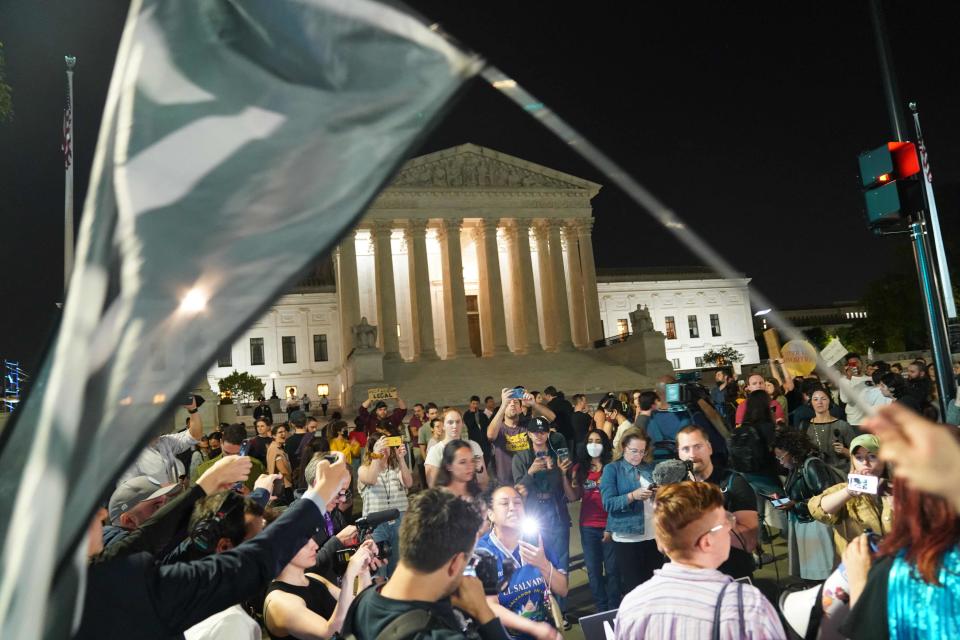Exclusive: Want to live in a state that bans abortions? Some Americans say 'no' in poll

In the category of unintended consequences, consider this: Nearly a third of Americans say they would find a state less desirable as a place to live if it banned abortions.
In a new USA TODAY/Suffolk University Poll, 31% say a ban would make a state less desirable; just 5% say it would make it more desirable.
The negative reaction is particularly strong among young people – 42% of those 18 to 25 years old – and those with more education. Thirty-two percent of those with a college degree and 45% of those with a post-graduate degree say an abortion ban would make a state less desirable.
For trendy cities that scramble to encourage younger and highly educated people to settle within their boundaries – Austin, Texas; Atlanta; Raleigh-Durham, North Carolina; St. Louis and elsewhere – that could pose a problem if the Supreme Court overturns Roe v. Wade and states curtail abortion rights.
"We have really been talking about it, because I do not like where Florida is heading," says Stacy Hannah, 61, a Navy veteran and a Democrat from Gulfport, Florida. "We have our family here, but if that was not the case, I would be out of Florida in a second."
Draft opinion: Five crucial sections in the Supreme Court's draft decision to overturn Roe v. Wade

"I don't think I would move my family, but I certainly would understand why other folks would," said Ben Hoffman, 35, a business analyst and an independent from Karthaus, Pennsylvania, who also mentioned policies affecting the LGBTQ community. “If those folks who are friends and neighbors are feeling like, you know, if this state is no longer hospitable to their lifestyle or (provides) women's health services ... I think it's within their right to say, ‘Hey, I'm not living here anymore.’”
Related video: Texas doctor refuses to give up fight to help women get safe abortions
The repercussions of a wave of abortion restrictions could be felt not only in health care and politics but also in the business world and demography.
Abortion exceptions: Abortion opponents less accepting of rape and incest as 'exceptions.' What changed?
If the landmark decision recognizing abortion rights is overturned:
By 57%-38%, a majority of those surveyed would want Congress to pass a law ensuring nationwide access to abortion.
By 53%-36%, they say employers should provide assistance to employees who are forced to travel to other states to obtain abortions.
By 68%-23%, they say corporations do not have a responsibility to speak out on abortion rights on behalf of their workers.
Some scholars said the legal reasoning behind a draft majority opinion overturning Roe v. Wade, leaked to Politico last month, could be applied to other rights that the high court has recognized.
By nearly 4-1, 72%-19%, those surveyed would oppose a court decision overturning the right of same-sex couples to marry. By about 9-1, they oppose overturning access to contraceptives (83%-9%).
The poll of 1,000 registered voters, taken June 12-15 by landline and cellphone, has a margin of error of plus or minus 3.1 percentage points.
This article originally appeared on USA TODAY: Abortion poll: 31% say they're less likely to live in states with bans

